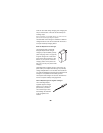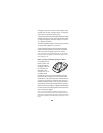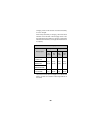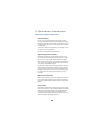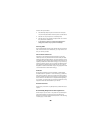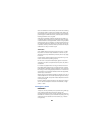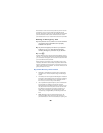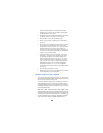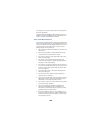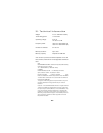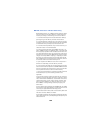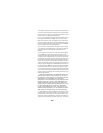100
The design of your phone complies with the FCC guidelines
(and those standards).
*American National Standards Institute, National Council on
Radiation Protection and Measurements; International Com-
mission on Non-Ionizing Radiation Protection.
Care and Maintenance
Your phone is a product of superior design and craftsmanship
and should be treated with care. The suggestions below will
help you to fulfill any warranty obligations and allow you to en-
joy this product for many years. When using your phone,
battery, charger, OR any accessory:
Keep it and all its parts and accessories out of small chil-
drens reach.
Keep it dry. Precipitation, humidity and liquids contain
minerals that will corrode electronic circuits.
Do not use or store it in dusty, dirty areas as its moving
parts can be damaged.
Do not store it in hot areas. High temperatures can
shorten the life of electronic devices, damage batteries,
and warp or melt certain plastics.
Do not store it in cold areas. When the phone warms up
(to its normal operating temperature), moisture can form
inside the phone, which may damage the phone's elec-
tronic circuit boards.
Do not attempt to open it. Non-expert handling of the
device may damage it.
Do not drop, knock or shake it. Rough handling can
break internal circuit boards.
Do not use harsh chemicals, cleaning solvents, or strong
detergents to clean it. Wipe it with a soft cloth slightly
dampened in a mild soap-and-water solution.
Do not paint it. Paint can clog the devices moving parts
and prevent proper operation.
Use only the supplied or an approved replacement
antenna. Unauthorized antennas, modifications or
attachments could damage the phone and may violate
regulations governing radio devices.
If the phone, battery, charger, or any accessory is not
working properly, take it to your nearest qualified service
facility. The personnel there will assist you, and if neces-
sary, arrange for service.



